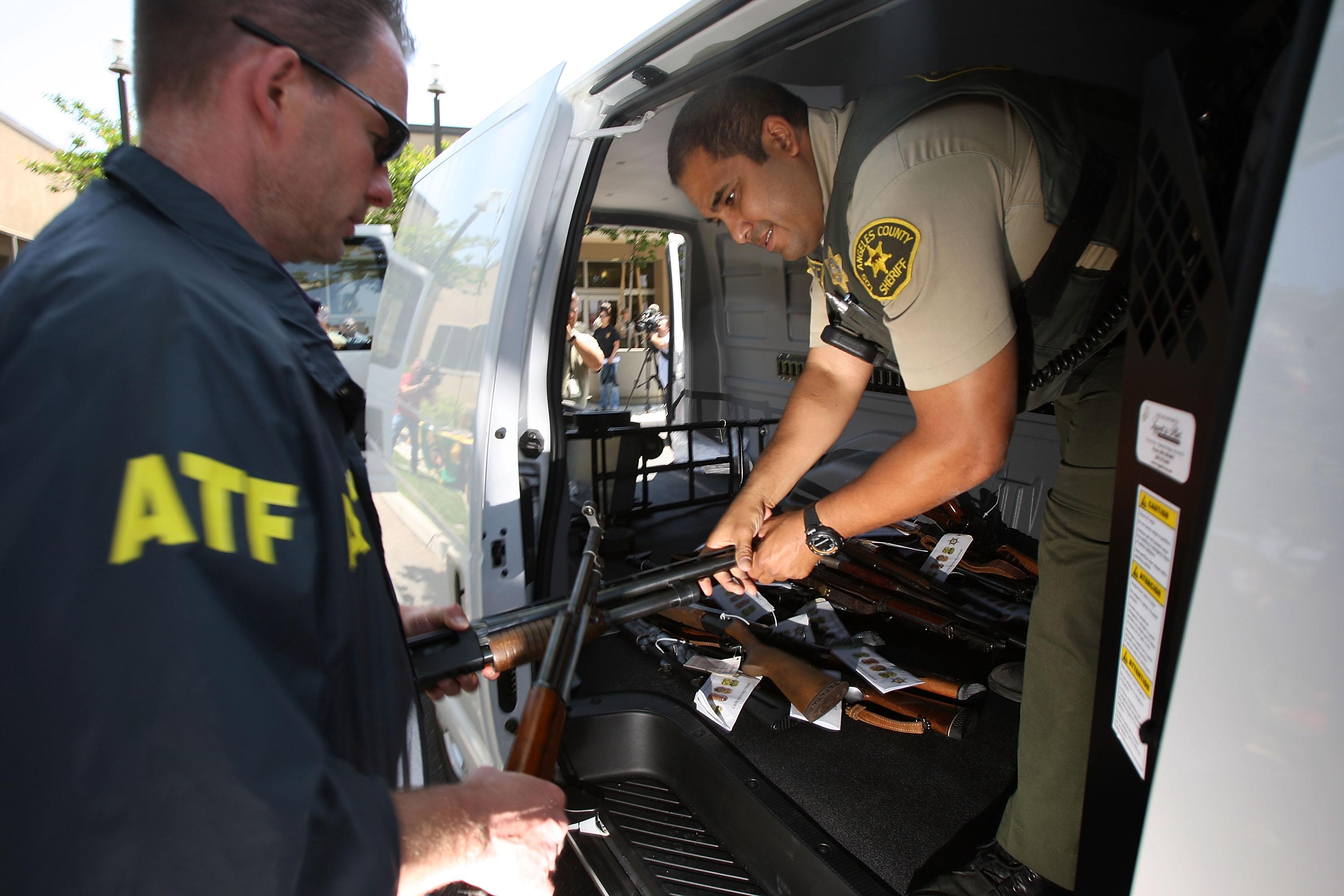Read more in Slate about gun control.
President Obama issued 23 executive orders on Wednesday aimed at reducing gun violence. The simplest of them was “Nominate an ATF director.” An acting director is currently running the Bureau of Alcohol, Tobacco, and Firearms; it has not had a director for six years. Why does the same agency oversee cigarettes, beer, and semi-automatic weapons?
It all goes back to taxes. When the federal government first moved to regulate firearms during the bloody gangland era, it faced an obstacle: The Supreme Court of the early 1930s took a restrictive view of federal power and had already struck down a series of public welfare laws. To avoid a similar defeat on gun control, President Roosevelt taxed weapons rather than banning them altogether. The Constitution grants the federal government broad taxation powers, and the court had largely permitted federal regulation in the guise of taxation. The National Firearms Act of 1934 slapped a $200 tax—more than $2,000 in 2013 dollars—on transactions involving machine guns or short-barreled rifles, doubling the price of heavy weapons. The FBI had little experience in tax collection, so responsibility for enforcing the law initially fell to the Miscellaneous Tax Unit in the Bureau of Internal Revenue. Eight years later, after passage of another significant gun control law, those duties were transferred to the Alcohol Tax Unit.
Why the Alcohol Tax Unit? Because it knew how to deal with bad guys. Alcohol manufacturers and distributors haven’t always willingly paid excise taxes—see, for example, the Whiskey Rebellion of 1794—so federal tax collectors had to know how to handle themselves in a scrape. The agents of the Alcohol Tax Unit in the 1930s were exceptionally tough. Before the 21st Amendment passed, the unit’s predecessor enforced Prohibition. Known as the “T-men,” because they were part of the Treasury Department, the agents were famous for their gunfighting prowess. (Popular Mechanics referred to them as “trigger men.”) The most renowned T-man was Eliot Ness, whose band of “untouchables” undermined Al Capone’s illegal brewing operations. Since the people who had flouted alcohol laws were the same folks trading in machine guns, it made sense to send the T-men after them.
Congress has never been entirely comfortable with our system for regulating and collecting taxes on guns and vices. The agencies responsible have repeatedly split, merged, changed names, and moved among administrative departments. Still, alcohol, tobacco, and firearms have stuck together for more than 70 years, which seems to reflect the complicated relationship Americans have with all three of them.
Having a single government bureau dedicated to spirits, smoking, and guns may have consequences, though. Many observers believe the bureau’s super-specialization opens it up to regulatory capture, the ability of industry or special interest groups to dictate policy to a government agency.
The National Rifle Association, for all its anti-ATF rhetoric, wants to keep the bureau intact. Shortly after his 1980 election, President Reagan moved to eliminate the ATF and give the Secret Service responsibility for enforcing federal gun control laws. The NRA opposed the move on strategic grounds. They believed it would be easier to demonize the Bureau of Alcohol, Tobacco and Firearms than the widely respected Secret Service. The gun-rights organization has repeatedly riled up its membership against the bureau. In 1995, for example, the NRA executive vice president caused a major stir when he referred to federal agents as “jack-booted thugs” in a fundraising letter. When Wayne LaPierre apologized, he noted that he was only referring to certain ATF agents.
Got a question about today’s news? Ask the Explainer.
Explainer thanks Adam Winkler of UCLA School of Law, author of Gunfight: The Battle Over the Right To Bear Arms in America.
